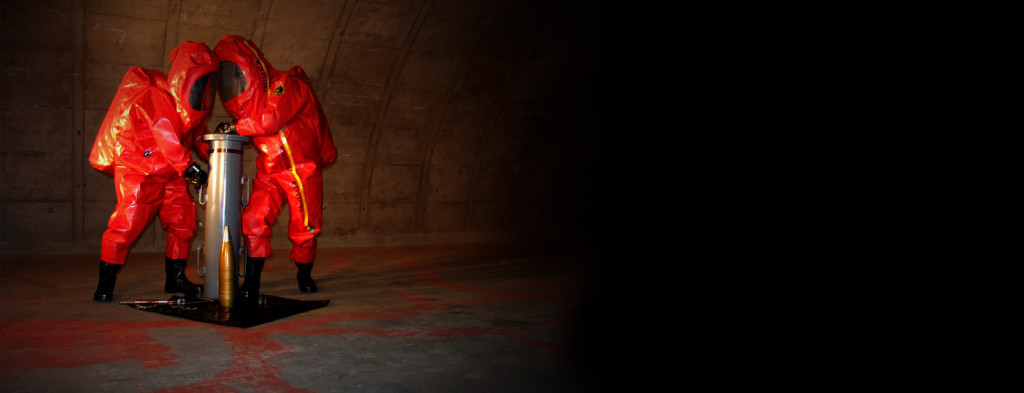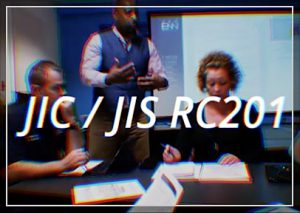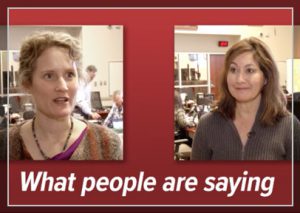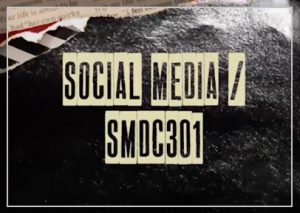
The Chemical Stockpile Emergency Preparedness Program (CSEPP) is a partnership between FEMA and the U.S. Department of the Army that provides emergency preparedness assistance and resources to communities surrounding the Army’s chemical warfare agent stockpiles. CSEPP’s mission is to “enhance existing local, installation, tribal, state and federal capabilities to protect the health and safety of the public, work force and environment from the effects of a chemical accident or incident involving the U.S. Army chemical stockpile.
Course registration is dependent upon sponsor review and approval.
RISK & CRISIS COMMUNICATION
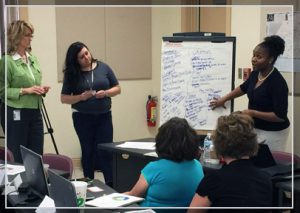 RC200 -This 2-day workshop is specifically designed for PIOs, PAOs, communication professionals, and Joint Information Center staff. Participants learn and apply focused methodologies and strategies for (1) identifying and addressing target audiences; (2) coordinating on-scene logistics; (3) employing best practices for news media staging; (4) effectively using news conference stagecraft; (5) communicating visually enhanced infographics to increase on and off-line reach and engagement; (6) employing media outreach initiative methods and strategies, including preparing effective media packets; and (7) becoming familiar with news media policy. The final course exercise includes planning, coordinating, and executing a news conference with local news reporters and/or role players.
RC200 -This 2-day workshop is specifically designed for PIOs, PAOs, communication professionals, and Joint Information Center staff. Participants learn and apply focused methodologies and strategies for (1) identifying and addressing target audiences; (2) coordinating on-scene logistics; (3) employing best practices for news media staging; (4) effectively using news conference stagecraft; (5) communicating visually enhanced infographics to increase on and off-line reach and engagement; (6) employing media outreach initiative methods and strategies, including preparing effective media packets; and (7) becoming familiar with news media policy. The final course exercise includes planning, coordinating, and executing a news conference with local news reporters and/or role players.
RC201 – This 2-day workshop, intended for public affairs professionals and Joint Information Center support staff, prepares participants to build relationships and work alongside government, non-government, private, non- profit, and emergency/disaster aid organizations with a common goal of communicating with one voice to multiple stakeholders. Participants work in group sessions that facilitate planning, coordination, team building, and implementation of Joint Information System and Joint Information Center (JIS/JIC) best practices. The workshop includes live news broadcasts, simulated radio broadcasts and digital news stories, and taped participant interviews that employ one of the safest and most realistic training environments, the Exercise News Network. Participants have the opportunity to practice gathering, analyzing, and verifying information; crafting and coordinating messaging; disseminating information via multiple communication channels; tracking and documenting incoming data; and monitoring multiple communication channels. Social media platforms, including Facebook, Instagram, and Twitter, are integrated into the final course exercise.
*Recommended that participants attend RC200 prior to RC201.
MEDIA RELATIONS
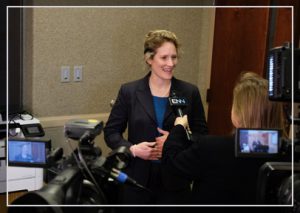 MR500 -This 1-day workshop, developed for public affairs professionals, prepares participants to work confidently with news media and make their points more effectively. The exchange between reporter and spokesperson helps shape a story; influence the public; and provide important information to targeted audiences before, during, and after an emergency. Participants train on- and off-camera with a skilled team of media experts experienced in how the news business works from the inside out. Workshop participants will gain a better understanding of (1) the role of the Public Information O cer/Public Affairs Officer; (2) how the media functions; (3) what information the public wants and needs; (4) how to use a message map to develop quotable sound bites; (5) how to take and maintain control of interviews; (6) the effect of body language and other non-verbal communication; (7) and how to conduct a remote interview.
MR500 -This 1-day workshop, developed for public affairs professionals, prepares participants to work confidently with news media and make their points more effectively. The exchange between reporter and spokesperson helps shape a story; influence the public; and provide important information to targeted audiences before, during, and after an emergency. Participants train on- and off-camera with a skilled team of media experts experienced in how the news business works from the inside out. Workshop participants will gain a better understanding of (1) the role of the Public Information O cer/Public Affairs Officer; (2) how the media functions; (3) what information the public wants and needs; (4) how to use a message map to develop quotable sound bites; (5) how to take and maintain control of interviews; (6) the effect of body language and other non-verbal communication; (7) and how to conduct a remote interview.
MR502 – This 1-day advanced spokesperson training is for experienced public a airs professionals, government officials, and Subject Matter Experts who may be called upon to interact with the news media. Participants engage in a variety of intense and fast-paced media interviews, including one-on-one and three-on-one in-person interviews, a remote interview, and a telephone interview. Message development, methodology, and strategy are continuously reinforced throughout this workshop.
*Prerequisite MR500, 501, FEMA G290 or equivalent.
SOCIAL MEDIA TECHNOLOGY & DIGITAL COMMUNICATION
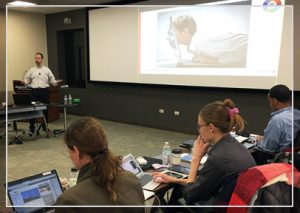 SMDC300 – This 3-day foundational workshop, designed for public safety PIO/PAO/EAO, government communicators, and emergency management personnel, offers practical solutions utilizing public information and situational awareness technology. Social Media Technology & Digital Communication training provides hands-on interaction with tablet technology, mobile applications, and social media.
SMDC300 – This 3-day foundational workshop, designed for public safety PIO/PAO/EAO, government communicators, and emergency management personnel, offers practical solutions utilizing public information and situational awareness technology. Social Media Technology & Digital Communication training provides hands-on interaction with tablet technology, mobile applications, and social media.
- ADVANCED SOCIAL MEDIA TECHNOLOGY AND COMMUNICATION
- Oct. 24-26 Course Agenda
- Getting to and staying around Argonne
SMDC301 – Designed for public safety PIO/PAO/EAO, government communicators, and emergency management personnel, this 3-day Advanced course builds on the skills learned in the Basic Social Media and Technology course (SMDC300). This training provides next-level hands-on interaction with mobile technology, mobile applications, social media, and emerging technology. Participants are exposed to the skills necessary to implement advanced technology techniques to support emergency management operations.
*Prerequisite SMDC301.
October 24-26, 2017 – Chicago, Illinois – Course Registration
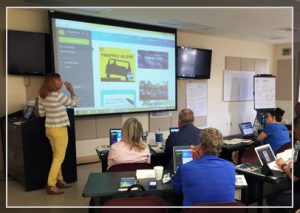 SMDC302 – Designed for public safety PIO/PAO/EAO, government communicators and emergency management personnel, this 1 1⁄2 day course provides participants with an understanding of the importance of creating a comprehensive social media strategy, practice in evaluating social media analytics, and the tools to develop a social media strategy. Course participants are empowered with a social media strategy and the ability to effectively analyze and evaluate social media analytics.
SMDC302 – Designed for public safety PIO/PAO/EAO, government communicators and emergency management personnel, this 1 1⁄2 day course provides participants with an understanding of the importance of creating a comprehensive social media strategy, practice in evaluating social media analytics, and the tools to develop a social media strategy. Course participants are empowered with a social media strategy and the ability to effectively analyze and evaluate social media analytics.
*Prerequisite SMDC300, IS-42 Social Media in Emergency Management (FEMA Independent Study Program).
November 16-17, 2017 – Pueblo, Colorado – Course Registration
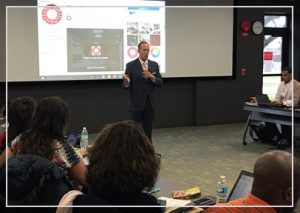 SMDC303 – Public a airs personnel are faced with the challenge of communicating with a “show & tell” culture. Telling your agency’s story and employing an online presence inclusive of digital and social media tools have become essential. This 1 day course is intended for PIOs/PAOs/EAOs and IT personnel who support public affairs efforts. In this course participants learn how to establish a digital news room, as well as enhance existing sites by employing a full spectrum of digital and social media tools utilizing digital platforms.
SMDC303 – Public a airs personnel are faced with the challenge of communicating with a “show & tell” culture. Telling your agency’s story and employing an online presence inclusive of digital and social media tools have become essential. This 1 day course is intended for PIOs/PAOs/EAOs and IT personnel who support public affairs efforts. In this course participants learn how to establish a digital news room, as well as enhance existing sites by employing a full spectrum of digital and social media tools utilizing digital platforms.
 SMDC304 – Intended for public affairs professionals and Joint Information Center support staff, this 2-day course prepares participants to build relationships and work alongside partners with a common goal of communicating with one voice to multiple stakeholders using new technology and social media techniques. Using social media hands-on practice for internal and external communications, participants work in group sessions and staff functional positions to implement best practices and lessons learned that facilitate planning, coordination, team building, and implementation of JIS/ JIC functions. Participants are given the opportunity to practice (1) gathering, analyzing, and verifying information; (2) crafting and coordinating messaging; (3) disseminating information via multiple communications channels; (4) tracking and documenting incoming data; and (5) monitoring multiple communications channels using social media techniques.
SMDC304 – Intended for public affairs professionals and Joint Information Center support staff, this 2-day course prepares participants to build relationships and work alongside partners with a common goal of communicating with one voice to multiple stakeholders using new technology and social media techniques. Using social media hands-on practice for internal and external communications, participants work in group sessions and staff functional positions to implement best practices and lessons learned that facilitate planning, coordination, team building, and implementation of JIS/ JIC functions. Participants are given the opportunity to practice (1) gathering, analyzing, and verifying information; (2) crafting and coordinating messaging; (3) disseminating information via multiple communications channels; (4) tracking and documenting incoming data; and (5) monitoring multiple communications channels using social media techniques.
*Prerequisites RC201, FEMA G291 or equivalent, PITC-400, NIMS 100.b, 200.b, 700, 700.a, 800.b.
PUBLIC INFORMATION TECHNOLOGY AND COMMUNICATION
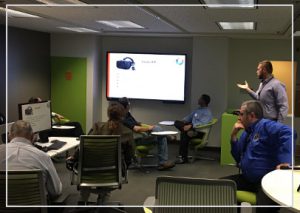 PITC402 – The evolution and availability of live streaming technology has become widely accepted and allows anyone to publish their stories into the national spotlight within moments. This 2-day course designed for PIOs/PAOs/EAOs provides the necessary skills to empower participants to tell their agency’s story “LIVE” utilizing practical and low-cost technology. Going “LIVE” is a crucial communication practice to employ when reaching affected communities during emergency incidents or target audiences during non-emergency events. Participants learn livestreaming techniques and gain a familiarity with the associated technology and equipment.
PITC402 – The evolution and availability of live streaming technology has become widely accepted and allows anyone to publish their stories into the national spotlight within moments. This 2-day course designed for PIOs/PAOs/EAOs provides the necessary skills to empower participants to tell their agency’s story “LIVE” utilizing practical and low-cost technology. Going “LIVE” is a crucial communication practice to employ when reaching affected communities during emergency incidents or target audiences during non-emergency events. Participants learn livestreaming techniques and gain a familiarity with the associated technology and equipment.
*Prerequisite PITC400.
November 14-15, 2017 – Pueblo, Colorado – Course Registration
